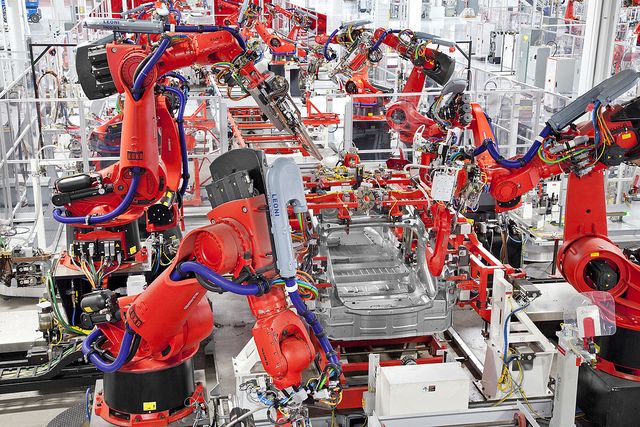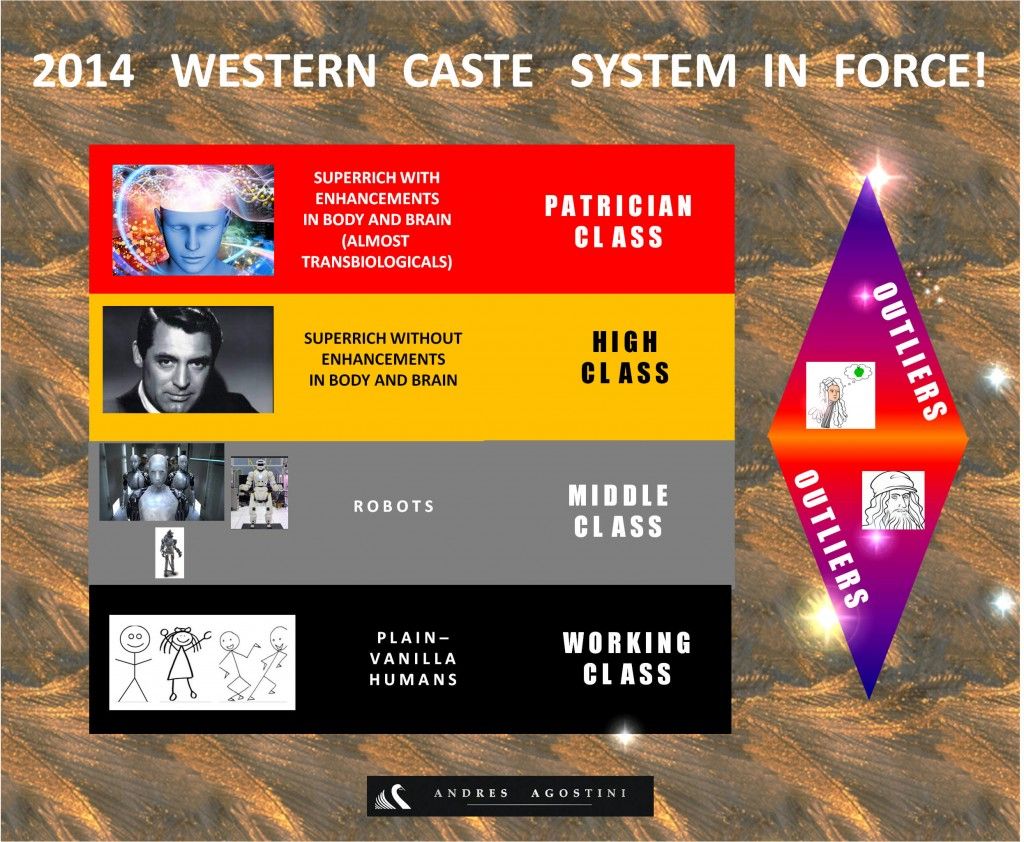When NASA’s space shuttle program retired in 2011, American astronauts were left with no way of transport to and from the International Space Station, except by Russian spacecraft. Considering tensions are now high between the two countries, thanks to Russia’s takeover of the Crimea region of Ukraine, NASA is looking for new options.
Page 11908
Sep 8, 2014
Getting Fortune 500 Prospective Client’s Cash, Continually and Successfully!
Posted by Andres Agostini in category: futurism
Getting Fortune 500 Prospective Client’s Cash, Continually and Successfully!
HOW TO SUCCEED IN BUSINESS ACCORDING TO THESE COMPANIES:
Mitsubishi Motors, Honda, Daimler-Chrysler’s Mercedes-Benz, Toyota, Royal Dutch Shell, Google, Xerox, Exxon-Mobil, Boeing, Amazon, Procter & Gamble, NASA and DARPA, Lockheed Martin, RAND Corporation and HUDSON Institute, Northrop Grumman Corporation, etc.
Continue reading “Getting Fortune 500 Prospective Client's Cash, Continually and Successfully!” »
Sep 8, 2014
Hitachi developing reactor that burns nuclear waste
Posted by Seb in category: nuclear energy
By David Szondy — Gizmag

The problem with nuclear waste is that it needs to be stored for many thousands of years before it’s safe, which is a tricky commitment for even the most stable civilization. To make this situation a bit more manageable, Hitachi, in partnership with MIT, the University of Michigan, and the University of California, Berkeley, is working on new reactor designs that use transuranic nuclear waste for fuel; leaving behind only short-lived radioactive elements.
In popular imagination, nuclear waste is a wildly radioactive goo that glows like the back end of a lightning bug. But in real life, the real problem of nuclear waste isn’t the “hot” stuff, but the mildly radioactive elements with atomic numbers greater than 92. That’s because highly radioactive elements have short half lives. That is, they burn themselves out very quickly – sometimes in a matter of minutes or even seconds.
Sep 7, 2014
The Police Tool That Pervs Use to Steal Nude Pics From Apple’s iCloud
Posted by Seb in category: cybercrime/malcode
By Andy Greenberg — Wired

As nude celebrity photos spilled onto the web over the weekend, blame for the scandal has rotated from the scumbag hackers who stole the images to a researcher who released a tool used to crack victims’ iCloud passwords to Apple, whose security flaws may have made that cracking exploit possible in the first place. But one step in the hackers’ sext-stealing playbook has been ignored—a piece of software designed to let cops and spies siphon data from iPhones, but is instead being used by pervy criminals themselves.
Sep 6, 2014
Why Germany Outrules and Outsmarts the Entire World! By Andres Agostini at www.linkedin.com/in/andresagostini
Posted by Andres Agostini in categories: economics, education, futurism
In Pictures.

It’s impossible to overstate how much the Internet matters. It has forever altered how we share information and store it for safekeeping, how we communicate with political leaders, how we document atrocities and hold wrongdoers accountable, how we consume entertainment and create it, even how we meet others and maintain relationships. Our society is strengthened and made more democratic by the open access the Internet enables. But the Internet as we know it is at risk from a variety of threats ranging from cybercrime to its very infrastructure, which wasn’t built to withstand the complications our dependence upon it causes.
We asked some of the Net’s biggest stakeholders and thought leaders to lay out ways we can maintain the Internet as a home for innovation, community, and freely exchanged information. We are excited to present you with these six takes on what could go wrong—and how to bring us back from the brink.
Sep 5, 2014
What Boeing’s space taxi could mean for the future of commercial space travel
Posted by Seb in category: space travel
By Robin Burks — TechTimes

Sep 4, 2014
Navy’s Next Fighter Likely to Feature Artificial Intelligence
Posted by Seb in categories: defense, robotics/AI
By: Dave Majumdar — USNI News

Artificial intelligence will likely feature prominently onboard the Pentagon’s next-generation successors to the Boeing F/A-18E/F Super Hornet and the Lockheed Martin F-22 Raptor.
“AI is going to be huge,” said one U.S. Navy official familiar with the service’s F/A-XX effort to replace the Super Hornet starting around 2030.
Further, while there are significant differences between the U.S. Air Force’s vision for its F-X air superiority fighter and the Navy’s F/A-XX, the two services agree on some fundamental aspects about what characteristics the jet will need to share.
Sep 3, 2014
Five Myths and Facts About Robotics Technology Today
Posted by Seb in category: robotics/AI

Ever faster processors, cheaper sensors, abundant open-source code, ubiquitous connectivity, and the advent of 3D printing are some of the forces behind the recent proliferation of robots. As I see things, these forces will only get stronger, and as more robots become part of our lives—in homes, offices, factories, hospitals, and many other places—we’ll inevitably face challenges involving our adoption and use of robots.
Some observers are voicing their fears about a decline in human-human interaction, while others warn of an irreversible and senseless loss of jobs, with robots taking over tasks that, they argue, should not be performed by machines (such as caring for the elderly). Trade-offs will certainly be part of our growing reliance on robotics and automation. And it will be up to us to manage these trade-offs, just as we have with other technologies such as electricity, the automobile, aviation, nuclear power, computers, and the Internet.
TJ McCue — Forbes

Depending on where you get your statistics, there are between 10 and 15 million amputees in the world. People who lose a limb go through a lot of pain obviously and the challenge to get a prosthetic limb that allows them to fully function again often doesn’t lessen the emotional pain aspect. It is a difficult process. Plus, it is not inexpensive. In this week’s news, there is a post about a young man in Ottawa who needs help to purchase a new prosthetic leg and he’s taken his need to crowdfunding on YouCaring.com.
Selvan Mohan is a PhD candidate at Carleton University. The university will help cover $10,000 of the $22,000 needed. His campaign is almost 50 percent funded. A group of people, friends included, got together to help him create the video which you can watch here. I found Mr. Mohan’s story compelling and worthy (check out the video), but what do you do if you cannot take your case to the powerful crowd-funding platforms?












